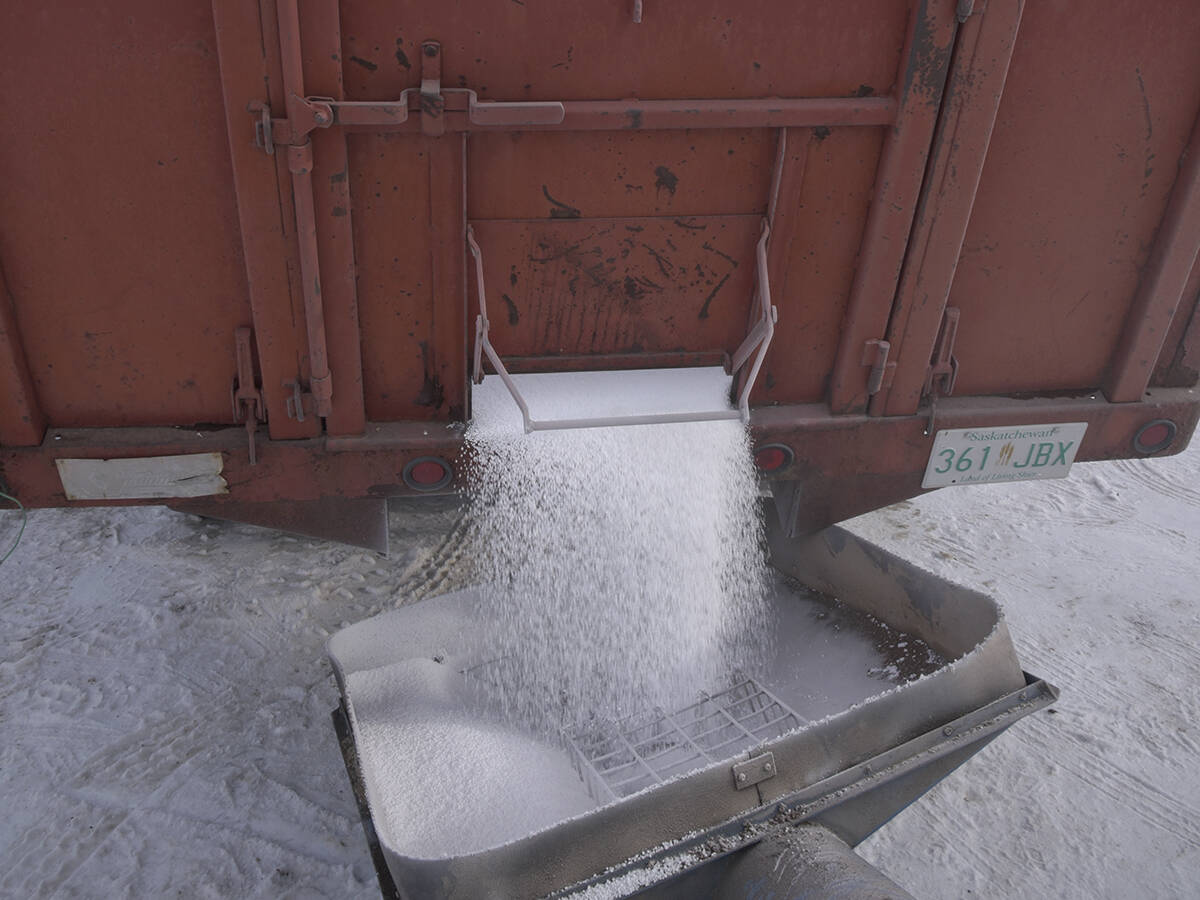When federal and provincial governments were designing their biofuel programs, there was a hue and cry by the farming community to include incentives for producer investment.
Farmers got what they wanted but they no longer appear interested in putting money into the projects.
Firms attempting to raise money from the local community are falling short of their targets and being forced to re-evaluate their financing strategies.
Ensask Biofuels Ltd., a group that intends to build a 104 million litre wheat ethanol plant in Tisdale, Sask., is the latest project to come to that realization. The company failed to raise the minimum $15 million on a share offering that closed Dec. 31.
Read Also

Urea prices heading higher: analyst
A fertilizer market analyst thinks urea prices have bottomed out and are heading higher through the first quarter of 2026.
“As grain prices have gone up there is less appetite for value-added investment and more of a preference to just buy back into the farm,” said Ensask chief executive officer James Leier.
Almost overnight, the biofuel investment climate seems to have chilled considerably.
A year ago the company had no trouble raising $5.2 million in seed capital from local investors to get the ball rolling on the project.
“Based on that we said, ‘Gee, there seems to be a lot of interest here. Let’s go to it,’ ” said Leier.
But by the time the share offering prospectus was finalized in August, commodity prices had risen substantially and interest in the plant had waned.
Lionel LaBelle, president of Gardiner Dam Agri-Energy Ltd., has had a similar experience with his fundraising efforts. When the project’s initial share offering closed Nov. 30, the group had fallen short of its $15 million minimum to build a 95 million litre plant in Strongfield, Sask.
He blames investor chill on the bad press the ethanol industry has received, being pilloried for everything from contributing to the greenhouse gas problem to taking food out of the mouths of starving people.
“In the last six or seven months there has been all kinds of negatives in regards to the biofuels industry,” said LaBelle.
But he is confident that a significant new development will counteract negative publicity and restore the confidence of potential investors.
The U.S. energy bill signed into law by president George Bush Dec. 19 creates a floor market for 136.3 billion litres of biofuel per year by 2022, nearly a five-fold increase over the old renewable fuel standard that called for 28.4 billion litres by 2012.
The new law immediately boosted the price of ethanol, increased share values of existing plants and revitalized projects that had stalled due to overproduction south of the border.
Both of the proposed Saskatchewan plants say the newfound optimism will spill over the border.
LaBelle said Gardiner Dam’s business plan is based on selling its fuel in Western Canada but the plant would not be averse to tapping into some of the tariff-free markets in the U.S.
“Saskatchewan is a hell of a lot closer to the Pacific Northwest and to California than the people of Iowa are,” he said.
He hopes investor confidence will be buoyed by the renewed optimism in the U.S. The company has received an extension from the Saskatchewan Financial Services Commission to achieve its $15 million minimum by March 14.
Ensask is taking a different tack. The Tisdale, Sask., company is attempting to woo a strategic partner to contribute at least half of the $127 million required to build the plant. The original plan was to have the plant majority-owned by local producers.
The firm hasn’t ruled out going back to the local investment community at a later date, but time is of the essence.
The group had to adjust its strategy on the fly to stay on schedule with its engineering plans, which call for construction in 2008 and the plant opening in 2009.
“We don’t want to have to delay that and have that come apart on us,” said Leier.
He agreed with LaBelle that even though grain prices continue to rise, there is heightened interest in ethanol facilities brought about by the new U.S. renewable fuel standard and by oil prices cresting $100 per barrel last week.
The Canadian Renewable Fuels Association said that latest development is a turning point for the industry.
“Oil at $100 makes the case for biofuels crystal clear. The price of oil is simply too high and too unreliable. We must continue to diversify our fuel supply,” said association president Gordon Quaiattini.















